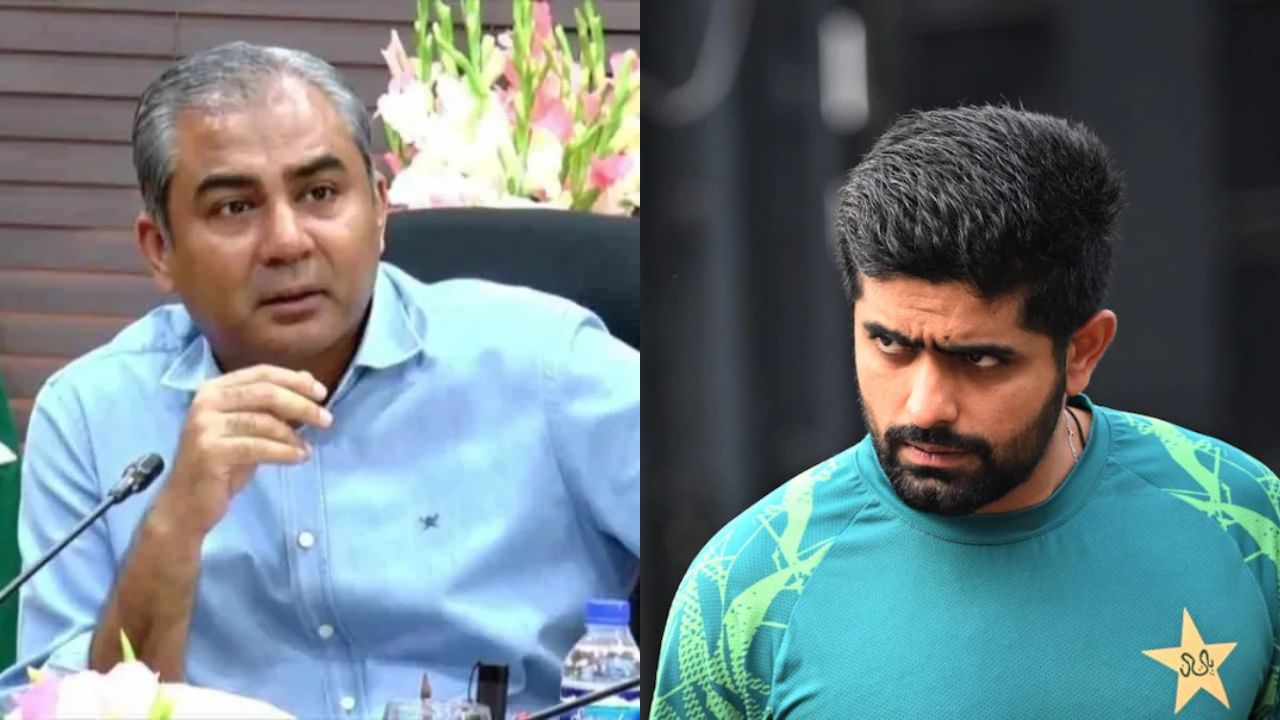PCB Cuts Down Domestic Players’ Fees Amidst Controversy
Pakistan Cricket Board (PCB) Faces Backlash
The Pakistan Cricket Board (PCB) is currently under fire for slashing the fees of domestic players participating in the upcoming National T20 Championship. Despite recent expenditures on stadium renovations and hefty payments to mentors and selectors, the decision to significantly reduce match fees has caused an uproar among players and fans alike.
According to reports, the PCB has reduced match fees from PKR 100,000 per match to just PKR 10,000 for players in the National T20 Championship. Reserve players will now receive PKR 5,000 per match, a sharp decrease from their previous earnings. This move has raised questions about the board’s priorities and treatment of domestic cricketers.
Controversy Surrounding Domestic Cricket in Pakistan
Abdullah Khurram Niazi, head of domestic cricket in Pakistan, has been accused of steadily reducing facilities for domestic cricketers over the past few months. Players have reportedly been moved from luxury accommodations in five-star hotels to cheaper options, and air travel has also been cut back. These changes have left many players dissatisfied with their treatment by the board.
While players are facing reduced salaries and amenities, mentors of the Champions Cup teams and national selectors are reportedly receiving substantial payments from the PCB. Mentors such as Misbah-ul-Haq, Waqar Younis, Shoaib Malik, Sarfaraz Ahmed, and Saqlain Mushtaq are said to be earning PKR 5 million per month, raising further concerns about the disparity in payments within the cricketing community.
Troubled Times for Pakistan Cricket
Pakistan cricket is currently experiencing a challenging period, marked by disappointing performances in recent tournaments. The team’s early exit from the Champions Trophy and failure to qualify for the semi-finals as hosts have drawn criticism from former players and fans. The lack of representation from Pakistan during the Champions Trophy 2025 final presentation ceremony following India’s victory further fueled controversy and led to PCB lodging a complaint with the ICC.
Moreover, the delay in clearing payments for last season’s domestic cricket participants and the absence of an annual pension scheme for former Test cricketers have added to the discontent within the cricketing community in Pakistan. The PCB’s decisions regarding player fees and overall management have sparked a debate about the future of domestic cricket and the treatment of players in the country.
Looking Ahead
As the National T20 Championship approaches, the PCB will have to address the concerns raised by players and stakeholders to ensure the well-being of domestic cricketers and the sustainability of cricket in Pakistan. The controversy surrounding player fees and disparities in payments within the cricketing community highlight the need for transparency and fairness in the administration of the sport.
It remains to be seen how the PCB will respond to the criticism and whether any actions will be taken to address the grievances of domestic players. As the cricketing world watches closely, the future of Pakistan cricket hangs in the balance amidst these challenging times.
Impact on Player Morale and Performance
The significant reduction in match fees for domestic players in Pakistan could have a profound impact on their morale and performance. When players feel undervalued and underpaid, it can lead to a lack of motivation and commitment on the field. This, in turn, could affect the quality of cricket being played in domestic tournaments, ultimately impacting the development of talent in the country.
Player welfare and financial security are crucial for maintaining a healthy cricketing ecosystem. By cutting down on players’ fees while seemingly prioritizing payments to mentors and selectors, the PCB risks alienating the very individuals who form the backbone of Pakistan’s cricket infrastructure. It is essential for the board to strike a balance between rewarding players for their hard work and ensuring the sustainability of the sport at all levels.
Calls for Transparency and Accountability
Amidst the controversy surrounding the PCB’s decisions on player fees and resource allocation, there is a growing demand for transparency and accountability within the organization. Fans, players, and stakeholders alike are urging the board to clarify its financial decisions and justify the disparities in payments between different members of the cricketing community.
Transparency in financial matters not only fosters trust within the cricketing fraternity but also allows for a more equitable distribution of resources. By being open about its budgetary constraints and expenditure, the PCB can demonstrate its commitment to fair play and ethical governance, setting a positive example for other cricket boards around the world.
Long-Term Ramifications for Pakistan Cricket
The current controversies surrounding player fees and management decisions by the PCB could have long-term ramifications for Pakistan cricket. If domestic players continue to feel undervalued and neglected, there is a risk of talent drain as promising cricketers may seek opportunities elsewhere or lose interest in pursuing a career in the sport.
Furthermore, the negative publicity generated by these issues could harm Pakistan cricket’s reputation internationally, potentially affecting sponsorships, partnerships, and overall growth opportunities. It is imperative for the PCB to address these concerns promptly and proactively to safeguard the future of cricket in the country and preserve its place in the global cricketing landscape.
Collaborative Efforts for Positive Change
Despite the challenges facing Pakistan cricket, there is an opportunity for all stakeholders to come together and work towards positive change. By engaging in open dialogue, listening to the concerns of players and fans, and implementing fair and inclusive policies, the PCB can rebuild trust and instill a sense of unity within the cricketing community.
Collaboration between players, administrators, coaches, mentors, and fans is essential for nurturing a supportive and thriving cricket culture in Pakistan. By fostering a sense of shared responsibility and mutual respect, the PCB can pave the way for a brighter future for cricket in the country, where every individual associated with the sport feels valued, respected, and empowered.
In conclusion, the current controversies surrounding player fees and management decisions in Pakistan cricket underscore the importance of fair play, transparency, and collaboration in shaping the future of the sport. By addressing the concerns raised and working towards a more equitable and inclusive cricketing environment, the PCB can ensure the long-term success and sustainability of cricket in Pakistan.







